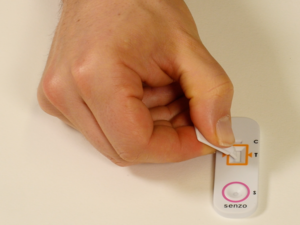
This week's update on the Philadelphia-area life sciences industry includes news on a multimillion-dollar knee pain product deal, a potential new chronic sinusitis treatment, a medical technology approval, and more.
Here's the roundup:
Endo
The specialty pharmaceutical company that has its U.S. headquarters in Malvern said its subsidiary Endo Ventures Ltd. has reached an agreement to commercialize a Japanese company's experimental osteoarthritis knee pain drug in the United States — should it receive regulatory approval.
Under the terms of the deal with Taiwan Liposome Co. Ltd., Endo (NASDAQ: ENDP) will get the exclusive rights to manufacture, market, sell and distribute the product in the United States. In return, Endo made an upfront payment of $30 million to Taiwan Liposome, which will also be eligible to receive up to an additional $110 million based on the achievement of certain development, regulatory, and manufacturing milestones.
The new drug candidate, TLC599, is an injectable compound in late-stage clinical testing.
Patrick Barry, Endo's executive vice president and president of global commercial operations, said TLC599 is "fully aligned" with Endo's commitment to provide nonsurgical treatment options to health care providers and their appropriate patients.
Endo expects to launch the product in the U.S. in 2025.
Taiwan Liposome will be responsible for the development of the product and Endo Ventures will be responsible for obtaining regulatory approval and the commercialization of the product in the U.S.
Optinose
The Bucks County pharmaceutical company reported positive clinical data on its product Xhance as a potential treatment for chronic sinusitis.
Optinose (NASDAQ: OPTN) of Yardley already has Food and Drug Administration approval for the use of Xhance — a nasal spray and exhalation delivery system — to treat nasal polyps.
The company said that in its second Phase 3 clinical trial involving patients with sinusitis the drug and device combination generated significant improvement in both symptoms and inflammation inside the sinuses. The data showed improvements in nasal congestion, facial pain or pressure, and nasal discharge.
"Currently there are no FDA-approved drug treatments for this large patient population,” said Dr. Ramy Mahmoud, president of Optinose. “We believe these results are important to the tens of millions of people suffering from chronic sinus disease."

Mahmoud said the company is working to quickly complete the analyses of both Phase 3 studies and has started the process of seeking an expanded approval for Xhance to include the broader group of patients.
The company's stock nearly doubled this week from its June 10 closing price, opening Friday at $3.64 per share.
Chronic sinusitis is a serious chronic inflammatory disease that afflicts about 30 million adults in the United States. The condition affects the paranasal sinuses and the nasal cavity, where the openings from the sinuses normally ventilate and drain.
Quick Hits
The FDA granted marketing clearance to the Exton-based Ricoh USA for its craniomaxillofacial (cranium and facial skeleton) and orthopedic patient-specific anatomic modeling under its Ricoh 3D for Healthcare. Ricoh 3D for Healthcare is designed for the development, design and production of 3D-printed anatomic models. It produces a detailed replica matched to the unique anatomy of each individual patient. … The U.S. Patent and Trademark Office awarded Malvern-based Ocugen (NASDAQ: OCGN) a patent that covers its gene therapy methods for preventing or treating an ocular disease or disorder associated with a retinal degenerative disease. Specifically, the patent covers the use of a nuclear hormone receptor gene, such as NR2E3, RORA, NUPR1 and NR2C1, in treating retinal degenerative diseases as well as reducing the risk of developing such diseases. The patent contains 18 claims and expires in March 2034.







